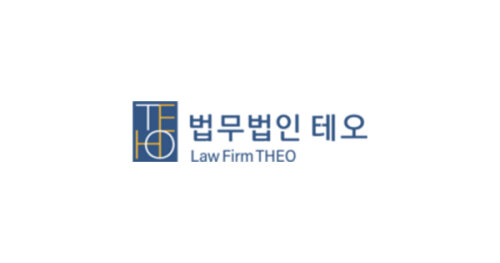Best Foreclosure Lawyers in Yeonsu-gu
Share your needs with us, get contacted by law firms.
Free. Takes 2 min.
Free Guide to Hiring a Real Estate Lawyer
List of the best lawyers in Yeonsu-gu, South Korea
About Foreclosure Law in Yeonsu-gu, South Korea
Foreclosure in Yeonsu-gu is handled under South Korea's civil execution system. When a creditor obtains a court judgment or has another enforceable title, the creditor may apply to the court for compulsory execution - commonly resulting in a public auction of the debtor's real estate or other assets. Execution and public sale of property are administered by the district court that has jurisdiction over the property. For properties in Yeonsu-gu the relevant execution procedures are managed by the Incheon district courts and their execution divisions.
The purpose of the court-run auction is to convert secured or attachable assets into cash to satisfy creditors. The process includes attachment of property, court appraisal, public sale scheduling, bidding, sale confirmation, distribution of sale proceeds, and where applicable, eviction and transfer of ownership after the sale is confirmed.
Why You May Need a Lawyer
Foreclosure matters are legally and practically complex. A lawyer can help in many common situations, such as: explaining whether the creditor's claim and paperwork are valid; identifying procedural defects that can delay or stop execution; negotiating with creditors to obtain repayment plans or workout agreements; representing you in court if you file an objection to execution or other defensive motions; preparing and presenting applications for provisional relief; advising on alternatives such as personal rehabilitation or bankruptcy; protecting tenant rights and resolving eviction disputes; and ensuring proper distribution of auction proceeds where multiple creditors or registrations are involved.
Because timing, filing requirements, and court practices matter, early legal advice can preserve rights and increase options for avoiding immediate loss of property.
Local Laws Overview
Key legal frameworks that affect foreclosure cases in Yeonsu-gu include the Civil Execution Act and related court practice rules. Important aspects to know are the following.
Attachment and auction - A creditor must apply for execution at the court. If the court accepts the application, it can attach the property and place it on a public sale list. The court will arrange an appraisal and announce an auction date. Both movable and immovable property can be subject to execution, but real estate is often subject to public auction.
Registration and priority - Priority among creditors is typically determined by legal registrations, such as mortgage registrations recorded at the local real estate registration office. Registered security rights normally take precedence in distribution of sale proceeds.
Notice and opportunity - The Civil Execution Act requires certain notice periods before auction and provides procedures for debtors to object or apply for a stay. Notices are published through court channels and formally served when required.
Exemptions and essential items - Some personal effects or items necessary for basic living may be exempt from sale under execution rules. The scope of those exemptions is limited and applied case by case.
Post-sale effects - After a court confirms the sale and ownership is transferred, eviction procedures may follow to remove occupants who do not leave voluntarily. Civil and administrative procedures control eviction timing and manner.
Alternatives - Korean law provides formal alternatives that can affect foreclosure, including mediation between parties, personal rehabilitation proceedings for individuals in long-term over-indebtedness, and bankruptcy procedures. These procedures can halt or alter execution outcomes when properly initiated.
Frequently Asked Questions
What exactly triggers a foreclosure in Yeonsu-gu?
Foreclosure usually starts when a creditor has a court judgment, a notarized bill of exchange, or another enforceable title and applies to the execution court to collect by compulsory execution. If the court accepts the application, it may attach the debtor's property and arrange its forced sale by public auction.
How long does the foreclosure process take?
Timing varies based on the complexity of the case, court schedules, and whether the debtor files objections or applies for relief. A simple execution and auction can take several months from attachment to auction and confirmation. If there are legal disputes, appeals, or insolvency procedures, the process can take much longer.
Can I stop foreclosure after the court has scheduled an auction?
Possibly. Options include paying the debt before the sale, negotiating a repayment plan or settlement with the creditor, filing a timely objection to execution if there are legal grounds, or initiating insolvency procedures such as personal rehabilitation or bankruptcy when eligible. Legal deadlines are strict, so consult a lawyer immediately.
What are my rights as a tenant if the property I rent is put up for auction?
Tenants have legal protections that depend on the type of lease and whether the lease is registered. A registered lease may survive the sale, meaning the buyer takes ownership subject to the lease. Unregistered leases can be less protected. Tenants should document their lease and consult a lawyer promptly to understand eviction risks and possible protections.
How are auction proceeds distributed among creditors?
After the sale is confirmed, the court distributes proceeds according to legal priority rules. Secured creditors with valid registrations are typically paid first. Costs of execution and court fees are paid from the proceeds. Unsecured creditors are paid from any remaining funds in the order provided by law.
Are there costs and fees I will have to pay during the process?
Yes. Execution and auction involve court costs, appraisal fees, and administrative expenses. If a creditor initiates execution, the creditor typically advances many of these costs, but the debtor may ultimately be responsible for the underlying debt and additional expenses. Legal representation also carries fees.
How can I find upcoming public auction notices for properties in Yeonsu-gu?
Public sale notices are published by the execution court and by official court notice systems. For Yeonsu-gu properties, auction notices are issued by the district court handling the geographic area. You can check public notices at the court or consult a lawyer or real estate professional who monitors auctions.
Can a creditor seize and sell my property without going to court?
No. In South Korea, compulsory seizure and sale of property for debt collection is a judicial process that requires court authorization. Private self-help repossession of real estate is not permitted. Creditors must use the court execution system to carry out a lawful sale.
What should I do immediately after receiving a foreclosure notice?
Do not ignore the notice. Gather all relevant documents such as loan agreements, mortgage or lease registrations, payment receipts, and court papers. Contact the execution court to confirm deadlines and required procedures. Seek legal advice right away to explore options like negotiation, stay applications, or insolvency procedures.
How do I choose a lawyer experienced in foreclosure matters in Yeonsu-gu?
Look for lawyers who specialize in civil execution, real estate, or insolvency. Ask about their experience with district court execution practice, success handling objections, negotiating with creditors, and representing clients in auctions and eviction matters. Check local bar association referrals and inquire about fee structures and initial consultation availability.
Additional Resources
Incheon district courts and their execution divisions handle public sales and enforcement matters for Yeonsu-gu properties. The local real estate registration office provides information on mortgages and registrations that determine creditor priority. The Korea Legal Aid Corporation provides free or low-cost legal assistance to eligible low-income residents. The Incheon Bar Association and local community legal centers can help with lawyer referrals and basic legal counseling. Yeonsu-gu Office and Incheon city social welfare or housing welfare divisions can advise on emergency housing support and welfare programs that may be relevant for residents facing eviction.
The Ministry of Justice publishes guidance on civil execution law and procedures. For complex insolvency options, look for lawyers experienced in personal rehabilitation and bankruptcy proceedings.
Next Steps
1. Immediately confirm the exact nature and deadlines in any court documents you received. Missing a deadline can limit your options.
2. Gather all relevant documents - loan contracts, mortgage registrations, receipts, lease agreements, and any court filings. Organized records help lawyers assess options quickly.
3. Contact the execution division of the relevant district court to verify auction dates, notices, and procedural steps you must follow.
4. Seek legal advice without delay. If cost is a concern, inquire with the Korea Legal Aid Corporation or local legal aid centers about eligibility for subsidized help.
5. Consider alternatives to sale - negotiate with creditors, apply for a repayment plan, seek mediation, or evaluate personal rehabilitation or bankruptcy when appropriate.
6. If eviction appears likely, ask about tenant protections and emergency housing assistance from Yeonsu-gu social services.
Consulting a qualified lawyer early gives you the best chance to preserve rights, explore alternatives, and reduce disruption during a foreclosure process.
Lawzana helps you find the best lawyers and law firms in Yeonsu-gu through a curated and pre-screened list of qualified legal professionals. Our platform offers rankings and detailed profiles of attorneys and law firms, allowing you to compare based on practice areas, including Foreclosure, experience, and client feedback.
Each profile includes a description of the firm's areas of practice, client reviews, team members and partners, year of establishment, spoken languages, office locations, contact information, social media presence, and any published articles or resources. Most firms on our platform speak English and are experienced in both local and international legal matters.
Get a quote from top-rated law firms in Yeonsu-gu, South Korea — quickly, securely, and without unnecessary hassle.
Disclaimer:
The information provided on this page is for general informational purposes only and does not constitute legal advice. While we strive to ensure the accuracy and relevance of the content, legal information may change over time, and interpretations of the law can vary. You should always consult with a qualified legal professional for advice specific to your situation.
We disclaim all liability for actions taken or not taken based on the content of this page. If you believe any information is incorrect or outdated, please contact us, and we will review and update it where appropriate.









